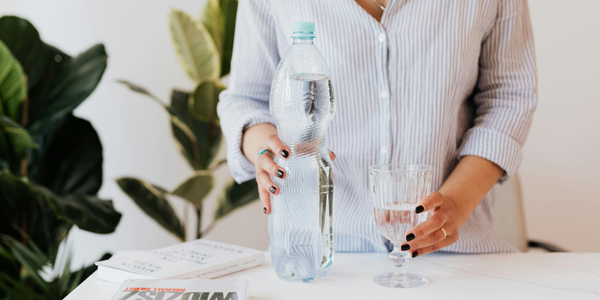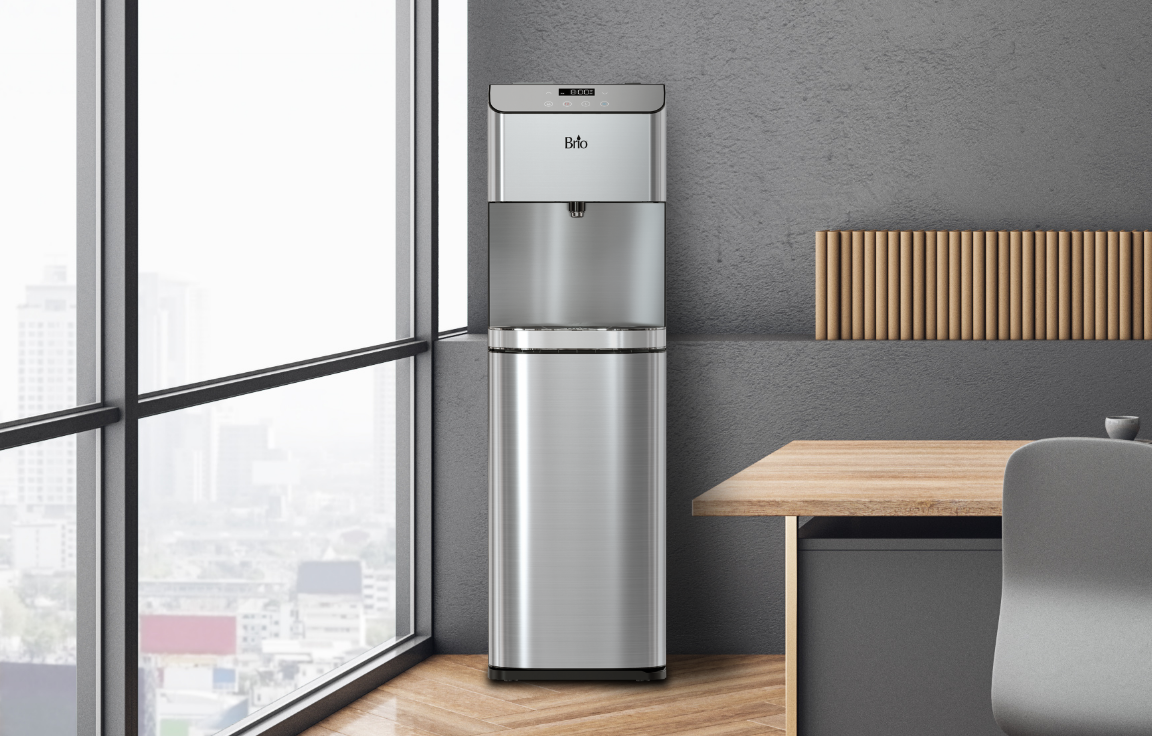Ever filled your glass from the faucet and thought there seems to be more chlorine in it than a swimming pool? Or worried about the high levels of forever chemicals detected in your water source? Or considered how your bottled water habit is adversely affecting the planet?

You’re not alone. You may have even googled: ‘are water filters worth it?’. After all, there has to be a way to hydrate that avoids unnecessary consumption of chemicals, tastes good and is kind to the environment.
But the world of water filtration can be murky. Misconceptions often cloud the truth. Rumors of expense, efficacy and upkeep swirl. Well, we’re here to bring clarity. Let’s dive into the common myths surrounding filtered water, unraveling the realities to empower informed choices for a healthier lifestyle.
Myth 1: water filters are expensive
According to the Environmental Working Group (EWG), filtering water at home is the best and most cost-effective solution. Installing a water filtration system for home might seem a big one-off cost, but the long-term investment will pay dividends. Here’s why.
- An endless supply of purified water is always available, because a Brio water filtration system for home works with your own water system and typically comes with a dedicated faucet.
- No more spending your hard-earned cash on bulk-buy water bottles.
- There’s no worrying about water bottles running low.
Myth 2: all water filters are the same
Nope! Different filter types, from Undersink Filtration, Tankless Reverse Osmosis Systems and Reverse Osmosis Systems, have unique strengths. Recognizing these distinctions is vital for effectively addressing specific requirements for your lifestyle.
Myth 3: boiling water is just as good as filtering
Wondering about boiling water vs filter? No contest! While boiling water is a commonly practiced purification method, it falls short in comparison to filtering. Boiling may eliminate bacteria and parasites but lacks the ability to remove impurities such as chemicals and heavy metals.
In contrast, water filters offer a comprehensive solution for clean and safe drinking water.

Myth 4: tap water is perfectly safe
It’s hard to stomach this one, but assuming that tap water is universally safe is a misguided belief. It depends on where you live, but there are a huge number of contaminants that can appear in tap water, leading to potential health problems and water that doesn’t taste or smell good.
Filtration serves as a reliable method for consistent removal of impurities, ensuring a safe and clean water source for consumption. Discover why filtered water is best for your health.
Myth 5: filters are hard to maintain
The concern regarding high maintenance for water filters is often exaggerated. Establishing a routine for filter maintenance, such as timely replacements, is straightforward. Brio filters are designed with user-friendly maintenance in mind, making upkeep a breeze.
Myth 6: bottled water is better than filtered water
Bottled water vs filtered water: the results are in – and they may surprise you. Contrary to popular belief, bottled water isn’t necessarily superior to filtered water. Then there’s the environmental impact of plastic waste.
Investing in a reliable water filter not only promotes sustainability but also offers a cost-effective solution for clean drinking water.

Myth 7: chlorine is the only nasty to worry about
Um, sorry, but no. It’s true that chlorine can leave potentially carcinogenic byproducts behind. But that’s not the only nasty in your water. Heavy metals, forever chemicals, pesticides, bacteria and microplastics are some of the top contaminants and chemicals that may be in your tap water and negatively affect the health of your family or workplace.
Myth 8: Brita and Berkey are just as good as reverse osmosis
Comparing popular filter brands is essential for informed decision-making. While brands like Brita and Berkey are well known and trusted, reverse osmosis is the most effective. By pushing water through a microscopically small filter material, it removes total dissolved solids (TDS) from water. Examples of TDS include salts, “forever chemicals” known as perfluoroalkyl and polyfluoroalkyl substances (PFAS), nitrates, fluoride and heavy metals such as lead and arsenic.
Neither ultrafiltration (0.1 to 0.01 micron pores) nor nanofiltration (0.001 micron pores) can achieve that level of contaminant reduction.
Myth 9: filters remove healthy minerals
So, do you need to add minerals to filtered water? Not if you choose an alkaline filter that remineralizes your purified water using multiple layers of filtration. These include layers of high-purity copper and zinc to reduce contaminants. Alkaline balls boost pH and add traces of healthy minerals, such as magnesium, calcium, potassium and selenium, back into the water. Discover the benefits of alkaline water.
Myth 10: installing a water filter is a pain
Delving into the physics of reverse osmosis can be complex, but the installation process is surprisingly straightforward. Basic plumbing skills are all that’s needed, making it an accessible upgrade if you want to enhance water quality without diving into intricate installation procedures.
While comprehensive whole-house reverse osmosis systems exist, it’s more common to find undersink filtration systems, focusing on the water crucial for drinking and cooking.

Myth 11: filters use too much electricity
Energy-efficient filtration alternatives are available, ensuring that the environmental impact of water purification remains minimal. Understanding these options provide choices aligned with your eco-conscious values.
Water filtration systems: the truth
Investing in a reliable water filtration system is not just a choice for convenience; it’s a commitment to personal health, environmental sustainability, and the assurance of a clean water source for generations to come. Let’s explore why having a water filtration system will elevate your home.
1. Removes contaminants
Water filtration systems effectively eliminate contaminants such as bacteria, viruses, chemicals, and heavy metals. This ensures the water you consume is clean and safe.
2. Improved taste and odor
Filtration enhances the taste and odor of water by eliminating impurities. Enjoying a refreshing and pure glass of water becomes a more pleasant experience.

3. Retains healthy minerals
Unlike some purification methods, water filtration systems selectively remove harmful substances while retaining essential minerals. This ensures your water not only lacks contaminants but also maintains its nutritional value.
4. Kind to planet
Opting for a water filtration system reduces reliance on single-use plastic bottles. This eco-friendly choice contributes to a significant decrease in plastic waste, benefiting the environment.
5. Saves money
While initial investment may be required, water filtration systems are a cost-effective long-term solution. They eliminate the need for constantly purchasing bottled water, saving money in the long run.

6. Customized filtration
Different filtration technologies cater to specific water quality needs. Whether it's addressing hard water, chlorine, or other contaminants, you can choose a system that suits your requirements.
7. Convenient and accessible
Having a water filtration system at home provides a constant and convenient source of clean water. No need to rely on store-bought bottled water or worry about the quality of tap water.
8. Peace of mind
Knowing your water is consistently filtered and safe provides peace of mind. It’s a proactive step toward ensuring the health and wellbeing of yourself and your family.
9. Encourages hydration
With improved taste and quality, filtered water encourages increased water consumption. Staying hydrated is essential for overall health and wellbeing.

In a world where we have little control, with a water filter, you’re in charge. Investing in a water filtration system is a holistic choice that goes beyond mere convenience. It’s a commitment to health, sustainability, and a more responsible approach to water consumption, contributing to a better quality of life for individuals and a healthier planet for all. Shop the Brio filter systems collection for optimum hydration.













































































